‘Which Way to the Stage’ Review: Wicked Ways
A comic love letter to theater fans, 'Which Way to the Stage' hits its marks with affection and pinpoint accuracy.
By André Hereford on December 29, 2022 @here4andre

Ana Nogueira’s perceptive comedy Which Way to the Stage (★★★★☆) celebrates and sends up all things theater in its well-constructed tale of two New York City actors, Jeff and Judy, whose friendship is tested when handsome stranger Mark comes between them.
The play, currently at Signature Theatre, generalizes shamelessly about theater folk, yet nails several very specific targets, from hyper-vigilant stage-door stans to sexually ambiguous heartthrobs like Mark who leave gay guys and straight girls alike hopefully pondering.
Director Ethan Heard captures that specificity first of all in the casting. Dani Stoller and Mike Millan match up fruitfully as besties Judy and Jeff, both talented, ambitious performers who worship at the altar of the performer they mutually idolize: Broadway star Idina Menzel.
Michael Tacconi is well-cast, too, as toothsome, tousle-haired Mark, also an actor, though, relative to Jeff and Judy, much less intense in his devotion to craft and career. Tacconi pulls off Mark’s true talent, his understated seductiveness, a cunning tool for success on and off the stage.

Judy is definitely susceptible to Mark’s charms when they meet at an audition for a summer stock production of Avenue Q. But she leaves unsure whether he was coming on to her, or was in fact hitting on the bombshell actress (Nina-Sophia Pacheco) who also showed up at the audition. Then again, Jeff meets Mark, and maybe Mark comes on to him, too.
Those “I don’t like labels” guys can be painfully confounding, especially within the musical theater space, but Mark knows it pays to play to every audience. The script makes the character savvy enough to acknowledge his pretty privilege, while the performance and direction ensure he’s just unaware enough to still be funny.
Jeff and Judy are practically Idina Menzel stalkers, but they’re funny, rather than sad, for obsessively waiting outside the theater where “the wickedly talented Adele Dazeem” belts her way through If/Then almost every night.

Of course, Nogueira has baked in a bounty of pithy musical theater punchlines, and inside jokes tailored to fans of the esteemed Miss Dazeem, among other divas of the Great White Way. We meet Jeff and Judy excitedly debating who did a better Mama Rose, Bernadette Peters or Patti LuPone, and agreeing on at least one count: both divas did it better than Imelda Staunton.
Jeff and Judy disagree vigorously and often — over musicals, over Mark, over Jeff’s drag interpretation of Idina Menzel, over the very idea of female impersonation as entertainment. The hyper-competitive pair even argue over which of them is the star of their story and which one’s the sidekick. Maybe they’re both the sidekick, or maybe neither is.
Nogueira raises a number of intriguing questions about the roles the friends play in one another’s lives, and the roles they’re allowed to play onstage. Will talent be enough to propel Judy to the next phase of her career, or is she missing something that comes fairly naturally to some of her peers? Can Jeff, who embraces his feminine fabulousness, find his place in an industry that welcomes queer folks but prefers to thrust straight-presenting dudes to the top?
Squaring off like opponents in the ring within the compact forum of Richard Ouellette’s versatile brick-wall set, the characters hash out their differences in engaging, even-handed tête-à-têtes. Each member of the cast — including Pacheco, who doubles as a ditzy bachelorette at a bar — adds to the lighthearted, if unsubtle, skewering of certain amusingly recognizable types. And recognizable actresses, with Stoller delivering a spot-on Bernadette Peters.
The company falters only in the final scene, in which a pivotal drag performance doesn’t ring a bell as the bold, brilliant revelation the play seemingly intends it to be. Or perhaps Heard’s direction aims towards a different intention, which just doesn’t transmit as clearly as the rest of Nogueira’s well-wrought exploration into the roles we perform for money, for art, for love, or just for the applause.
Which Way to the Stage runs through Jan. 22 at Signature Theatre, 4200 Campbell Ave. in Arlington, with a Pride Night performance on Jan. 20. Tickets are $40 to $90. Call 703-820-9771, or visit www.sigtheatre.org.
Signature Honors Mandy Patinkin in Emotional Celebration
Ben Platt and Annaleigh Ashford led a heartfelt musical tribute to honor Mandy Patinkin at Signature’s Sondheim Award Gala.
By André Hereford on April 17, 2025 @here4andre
It was Monday in the dark with Mandy Patinkin as Signature Theatre feted this year’s Stephen Sondheim Award honoree with a glowing musical tribute to his career on stage and screen. Joined by Kathryn Grody, his wife of 45 years, Patinkin sat center table at the annual gala, held for the second consecutive year at The Anthem.
The concert venue was ever apt for singing the praises of the Tony and Emmy winning performer, whose artistry in creating roles on Broadway in Evita, The Secret Garden, The Wild Party, and, of course, Sondheim’s Sunday in the Park with George, helped earn him the Sondheim Award, established by Signature in 2009 “to honor an individual for his or her contributions to American Musical Theater.”
For Lane Moore, Swiping Right on Tinder is Another Day on the Job
Comic Lane Moore is currently touring her hit comedy show "Tinder Live!" where she seeks out cis het men and their ultra-weird profiles.
By Randy Shulman on March 14, 2025 @RandyShulman
Women don’t cruise, says Lane Moore, they “pine.”
“Of course, of course, some women cruise!” the bisexual comedian known for her show Tinder Live! With Lane Moore laughs. “I don't want to speak for everybody, but I think for me, I respectfully pine. I definitely am on the street just like, ‘Damn, she's extremely hot! I am into it!’ And then I just assume or hope that we will meet if it is destiny.”
Moore’s destiny, as it turns out, lay in Tinder, the ubiquitous, somewhat obnoxious dating app that encourages people to accept -- or reject -- perspective paramours by swiping right or left on their photos.
The Commanding Style of Nathan Lee Graham
As Arthur Broussard, "Mid-Century Modern's" Nathan Lee Graham slays the assignment in his own inimitable style.
By André Hereford on March 31, 2025 @here4andre
With the well-timed arch of an eyebrow, or just a sharp glance, Nathan Lee Graham can command a scene in silence, well before he unleashes some artful, perfectly enunciated turn of phrase.
The actor has been brandishing his enviable diction and expressive mien for decades on Broadway, in The Wild Party and Priscilla, Queen of the Desert, in films from Zoolander to Theater Camp, and on TV shows, like the new Hulu sitcom Mid-Century Modern, where he stars with Nathan Lane and Matt Bomer as three mature gay friends who move in together à la The Golden Girls.
Support Metro Weekly’s Journalism
These are challenging times for news organizations. And yet it’s crucial we stay active and provide vital resources and information to both our local readers and the world. So won’t you please take a moment and consider supporting Metro Weekly with a membership? For as little as $5 a month, you can help ensure Metro Weekly magazine and MetroWeekly.com remain free, viable resources as we provide the best, most diverse, culturally-resonant LGBTQ coverage in both the D.C. region and around the world. Memberships come with exclusive perks and discounts, your own personal digital delivery of each week’s magazine (and an archive), access to our Member's Lounge when it launches this fall, and exclusive members-only items like Metro Weekly Membership Mugs and Tote Bags! Check out all our membership levels here and please join us today!
The Magazine
-
Most Popular
 Signature Honors Mandy Patinkin in Emotional Celebration
Signature Honors Mandy Patinkin in Emotional Celebration  Gay Army Reserve Officer in Uniform Sex Video Scandal
Gay Army Reserve Officer in Uniform Sex Video Scandal  A Potent (and Pricey) 'Good Night, And Good Luck'
A Potent (and Pricey) 'Good Night, And Good Luck'  Sarah Snook is Astonishing in Broadway's 'Dorian Gray'
Sarah Snook is Astonishing in Broadway's 'Dorian Gray'  MISTR's Free DoxyPEP Leads to Huge Drop in STI Rates
MISTR's Free DoxyPEP Leads to Huge Drop in STI Rates  Jared Polis Signs Law Repealing Colorado's Gay Marriage Ban
Jared Polis Signs Law Repealing Colorado's Gay Marriage Ban  Becca Balint: The Pride of Vermont
Becca Balint: The Pride of Vermont  Police Barge into Walmart Restroom to Confront Butch Lesbian
Police Barge into Walmart Restroom to Confront Butch Lesbian  'Gray Pride' Protests Hungary's Ban on Gay Pride Marches
'Gray Pride' Protests Hungary's Ban on Gay Pride Marches  Hugh Bonneville Delivers a Show-Stopping Vanya
Hugh Bonneville Delivers a Show-Stopping Vanya
 Becca Balint: The Pride of Vermont
Becca Balint: The Pride of Vermont  Signature Honors Mandy Patinkin in Emotional Celebration
Signature Honors Mandy Patinkin in Emotional Celebration  MISTR's Free DoxyPEP Leads to Huge Drop in STI Rates
MISTR's Free DoxyPEP Leads to Huge Drop in STI Rates  A Potent (and Pricey) 'Good Night, And Good Luck'
A Potent (and Pricey) 'Good Night, And Good Luck'  Sarah Snook is Astonishing in Broadway's 'Dorian Gray'
Sarah Snook is Astonishing in Broadway's 'Dorian Gray'  'Gray Pride' Protests Hungary's Ban on Gay Pride Marches
'Gray Pride' Protests Hungary's Ban on Gay Pride Marches  Jared Polis Signs Law Repealing Colorado's Gay Marriage Ban
Jared Polis Signs Law Repealing Colorado's Gay Marriage Ban  White House Ignores Reporters with Pronouns in Email Signatures
White House Ignores Reporters with Pronouns in Email Signatures  White House Demands NIH Study Transgender Transition "Regret"
White House Demands NIH Study Transgender Transition "Regret"  Air Force Reverses Ban on Pronouns in Email Signatures
Air Force Reverses Ban on Pronouns in Email Signatures
Scene
Metro Weekly
Washington's LGBTQ Magazine
P.O. Box 11559
Washington, DC 20008 (202) 638-6830
About Us pageFollow Us:
· Facebook
· Twitter
· Flipboard
· YouTube
· Instagram
· RSS News | RSS SceneArchives
Copyright ©2024 Jansi LLC.






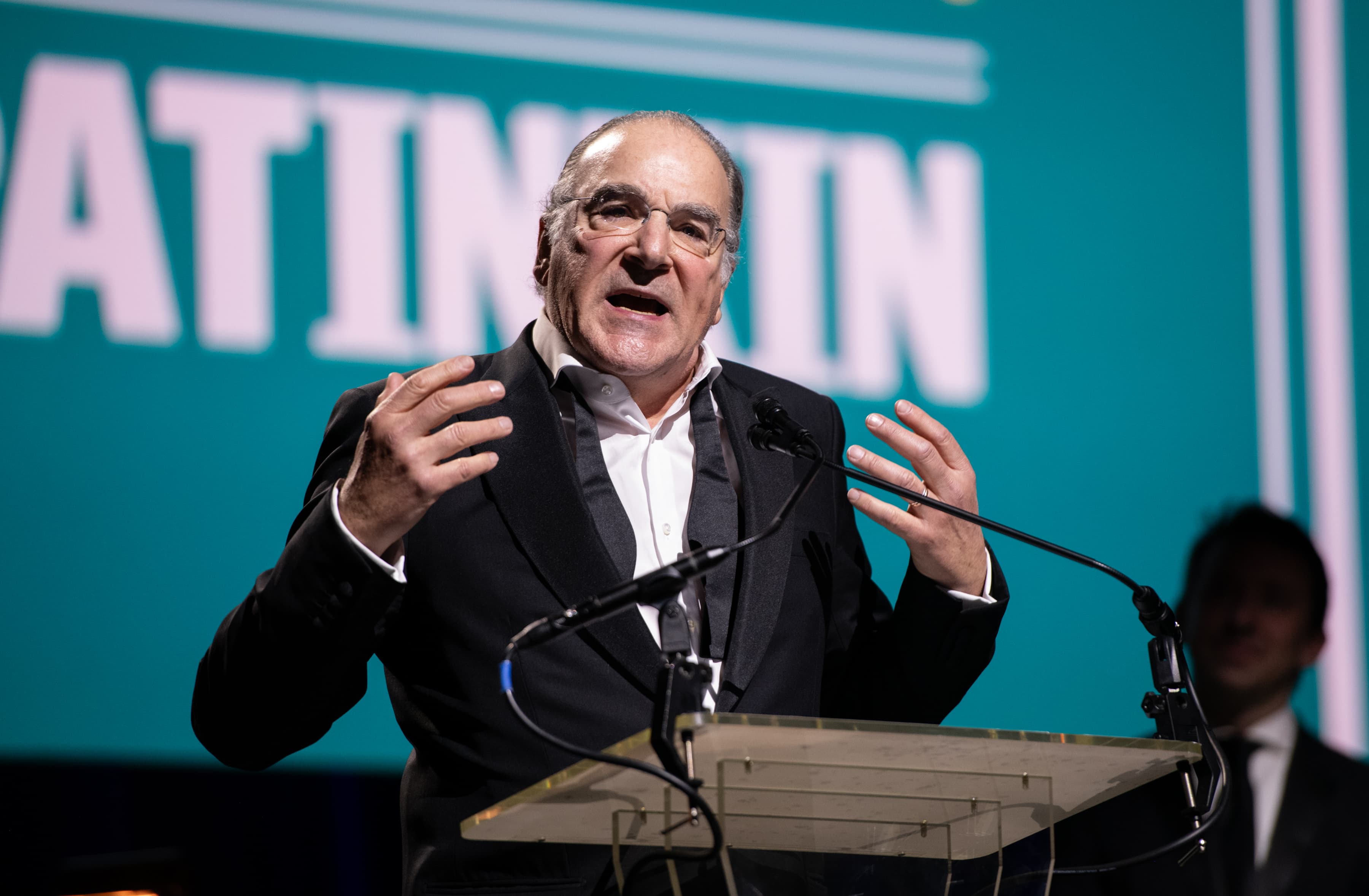
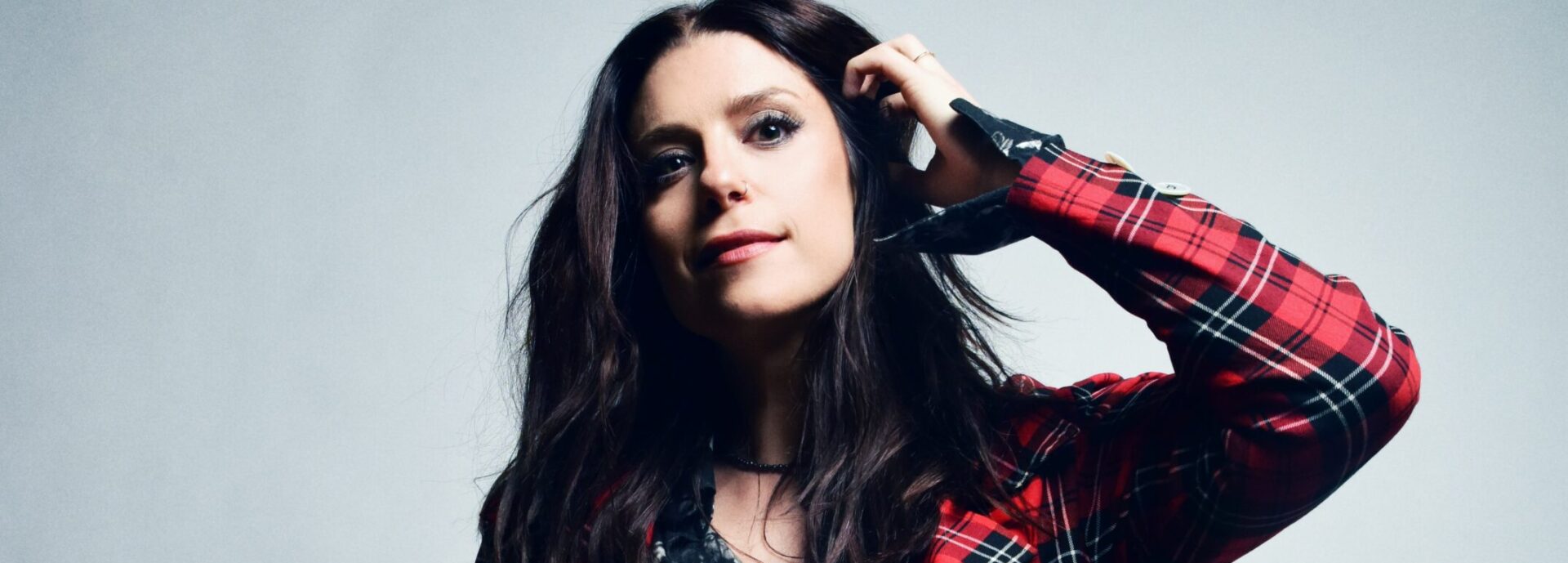
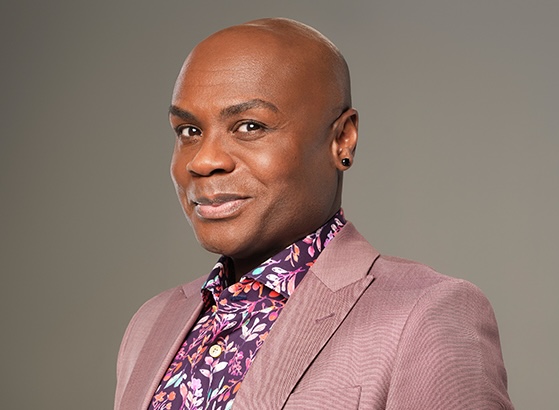
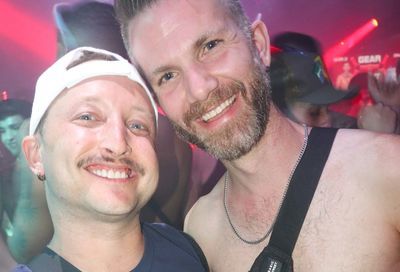
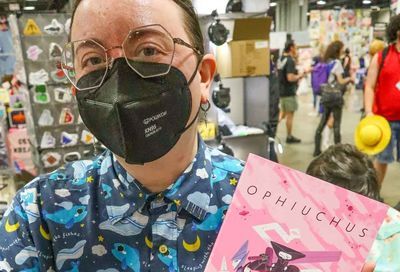
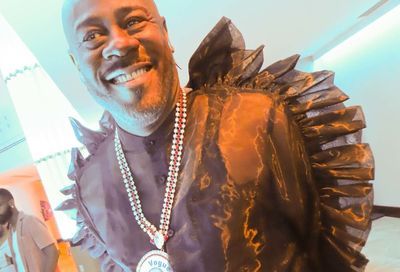
You must be logged in to post a comment.